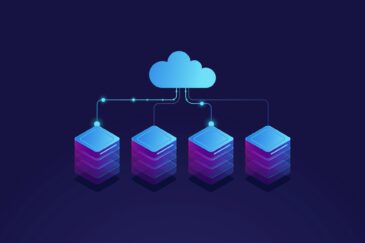How to Overcome Data Extraction Challenges?

- June 4, 2024
- Mohammed Nadeem Uddin
- 0
Published On June 4, 2024
Businesses face challenges with data extraction primarily due to the diversity and complexity of data sources, the volume of data, and the need for real-time processing. Different systems and applications often have varying formats, structures, and quality standards, making it challenging to integrate data seamlessly. Additionally, handling large datasets requires significant computational resources and sophisticated tools to ensure efficient processing and storage. Real-time data extraction further complicates the process, demanding continuous, low-latency data flow and robust error-handling mechanisms. Legal and compliance issues add an extra layer of difficulty, necessitating strict adherence to data privacy regulations.
These considerations make effective data extraction and integration more difficult. Here’s how you can overcome these challenges:
Ensuring Data Quality and Consistency
Data extraction tools often include built-in validation and cleaning features to address data quality and consistency. These tools can automatically detect and rectify missing values, duplicate records, and format inconsistencies. By using advanced machine learning techniques, these tools help maintain high data quality and uniformity, ensuring that extracted data is accurate and reliable for subsequent analysis.
Integrating Data from Multiple Sources
Data extraction software is designed to handle integration challenges by supporting various data sources, including databases, APIs, spreadsheets, and web scraping. These tools typically provide connectors and adapters that simplify the process of mapping and transforming data from various formats into a unified schema. This capability streamlines the integration process, making it easier to harmonize data from diverse sources and create a coherent dataset for analysis.
Managing Large Volumes of Data
Data extraction tools are equipped with scalable architectures and efficient data processing capabilities to manage large volumes of data effectively. These tools leverage distributed computing and cloud technologies to handle big data, ensuring that extraction processes are fast and do not overwhelm system resources. Additionally, parallel processing and automated load balancing help maintain performance and reliability even when dealing with massive datasets.
Real-Time Data Extraction
Data extraction tools that support continuous data streaming and real-time processing facilitate real-time data extraction. These tools are designed to handle high-velocity data flows with minimal latency, providing up-to-date information for immediate analysis and decision-making. They often include features like event-driven architectures and real-time monitoring to ensure uninterrupted data extraction and quick response to any issues.
Navigating Legal and Compliance Issues
Data extraction tools help organizations comply with legal and regulatory requirements by incorporating features that ensure data privacy and protection. These tools provide functionalities such as data anonymization, encryption, and consent management to safeguard sensitive information. Compliance modules and audit trails are also included to document and verify adherence to regulations, reducing the risk of legal penalties and enhancing trust.
Addressing Technical Expertise and Resource Constraints
Data extraction software often has user-friendly interfaces and automated workflows to mitigate the need for extensive technical expertise. These tools are designed for easy access to users with varying levels of technical skill, providing drag-and-drop functionalities, pre-built templates, and guided configuration wizards. This ease of use allows organizations with limited resources to implement and benefit from advanced data extraction capabilities without requiring extensive technical knowledge.
With these advantages in mind, let’s move on to the migration process.
Facilitating Data Transformation and Cleaning
Data extraction software streamlines the data transformation and cleaning process by offering advanced ETL (Extract, Transform, Load) functionalities. These tools automate many tasks in parsing, filtering, normalizing, and aggregating data. With features like rule-based transformations, pattern recognition, and data enrichment, these tools reduce the manual effort required and enhance the quality of the prepared data, making it ready for analysis more quickly and efficiently.
Enhancing Data Security
Maintaining data security during extraction is a critical feature of modern data extraction software. These tools implement robust security measures such as end-to-end encryption, role-based access controls, and secure data transmission protocols. They also provide continuous monitoring and logging to detect and address security threats in real-time. By adhering to industry standards and best practices, these tools ensure that data remains protected throughout the extraction process, giving you a sense of trust and confidence in the security of your data and mitigating risks of breaches and unauthorized access.
Data Extraction Tools for Oracle Databases
Oracle data extraction tools, mainly designed for Oracle Cloud Applications, offer a sense of control and efficiency in various business scenarios and integration needs. Choosing methods that align with specific use cases and destination requirements is essential when extracting data. A robust data extraction approach can give organizations peace of mind when integrating data from various systems, such as Oracle ERP Cloud and third-party applications. This could involve synchronizing transactional data between Oracle ERP Cloud and external systems such as master data management or billing systems. Key strategies include daily extraction of data into the Oracle Fusion Data Intelligence Platform and integrating Oracle ERP Cloud data with third-party data warehouses for comprehensive analysis.
One recommended tool for extracting medium to high volumes of data from Oracle ERP Cloud is the Business Intelligence Cloud Connect (BICC), which is included with the Oracle Cloud Applications subscription. BICC is a comprehensive data extraction and integration tool that facilitates the execution of initial and incremental data extracts based on predefined BICC Data Stores tailored for various ERP modules such as Financials, Procurement, and Supply Chain. To optimize performance, perform an initial complete data extract followed by incremental extracts, with daily scheduling capabilities and a recommendation to limit ad-hoc extracts to four per day. The extraction frequency should align with business needs, such as monthly extracts for periodic tasks like depreciation in fixed assets. Additionally, BICC powers the Oracle Fusion Data Intelligence Platform, enhancing ERP analytics through efficient data extraction and integration.

Services
Products
Company
Copyright © 2024 Rite Software Solutions & Services LLP. All rights reserved.



